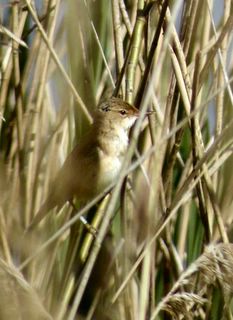By April they're back (the earliest of them since March), and the breeding season is in full swing. By the end of May, there are chicks everywhere, and while spring isn't quite over, it is drawing to a close. And after spring? Why, autumn of course!
This is an interesting view on how birds view the passing year, one I have just discovered hidden in the pages of Simon Barnes' book How to Be a Bad Birdwatcher. The theory goes that birds have just three seasons. First you have spring, with its breeding and the raising of young. Then follows autumn, in which strength is gathered and reserves built up - and possibly a migration is made to wintering grounds. And then winter, a battle for survival through to spring, when breeding can start again.



Well, I don't know how birds view the world or the seasons, but I do know that in common with most birders, spring (however defined) remains my favourite time of year. There have been no posts here since April because whenever I have had spare time, I have birded. I have seen Dippers, oh-so-elusive Wood Warblers and (my first ever) Tree Pipits in Yorkshire. I have found my first patch wader, a Common Sandpiper along Leam Valley, and I have enjoyed almost daily all of our spring visitors - including some favourites such as Willow Warbler, Chiffchaff, Cuckoo, Swift, Swallow and House Martin, Whitethroat, Garden Warbler, and, as photographed above, Reed Warblers, wonderfully elusive little birds of reed beds with endless chirping little songs that always remind me of summer - because actualy, no matter what birds or Simon Barnes may think of the seaons, for me at least, summer is just about here.